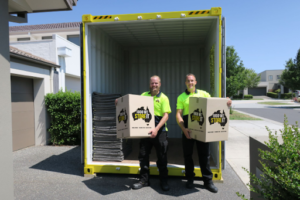Bodies during burning The heat of the fire will cause significant damage to the body. The fire will cause the soft tissues to contract, which causes the skin to tear and the fat and muscles to shrink. The internal organs will also shrink. The muscles contract due to burning and this causes the joints to flex.
What is a burned body called?
Cremation is a method of final disposition of a dead body through burning. Cremation may serve as a funeral or post-funeral rite and as an alternative to burial.
How do you describe a burning body?
Emergency workers and survivors of war atrocities say charred flesh simply smells like nothing else. The scent is nauseating and sweet, putrid and steaky, or something like leather being tanned over a flame. The smell can be so thick and rich that it’s almost a taste.
Does burning a body destroy DNA?
In addition to the physical alterations, heat in the burning process also induces chemical modification of bones due to combustion and pyrolysis of chemical substances. The degree of modification increases with rising temperatures, and includes degradation of DNA, which compromises forensic identification techniques.
Which part of body does not burn in fire?
At first, hair is the only thing that WILL burn. At the last, bone is the only thing that will NOT burn.
Do burn victims feel pain?
Most patients report feeling pain, fatigue, and itching during recovery and rehabilitation. Pain is common. Third degree burns are painful with deep pressure. Second degree burns are painful with air movement or changes in temperature.
How long does it take to cremate a body?
about three to four hours How long does cremation take? The entire cremation timeframe including any waiting period, authorization and the actual cremation can take anywhere from four days to two weeks from start to finish. The cremation itself takes about three to four hours, with another one to two hours for processing.
Is Cremation a sin?
A: In the Bible, cremation is not labeled a sinful practice. … Some biblical references of burning a person with fire seem to suggest the type of life they lived – the enemies of God and God’s laws were promptly cremated as a form of capital punishment.
Is burnt smell bad for you?
Smoke may smell good, but it’s not good for you Smoke is made up of a complex mixture of gases and fine particles produced when wood and other organic materials burn. The biggest health threat from smoke is from fine particles. These microscopic particles can penetrate deep into your lungs.
How do you describe burning pain?
A burning sensation is a type of pain that’s distinct from dull, stabbing, or aching pain. A burning pain is often related to nerve problems. However, there are many other possible causes. Injuries, infections, and autoimmune disorders have the potential to trigger nerve pain, and in some cases cause nerve damage.
What does ash smell like?
What does Ash smell like? All types of wood can be used as firewood but some are better than others. … Most woods produce fruity, nutty, or piney fragrances. Ash has a slight aroma but not over powering like fresh Red Oak, which smells like vinegar when it burns.
Is burning a body a good way to get rid of it?
Intentional damage to a body from burning or dismemberment can obviously limit the amount of evidence, Satterfield said. For example, she said, burns might obliterate bruising that could be partial evidence of a rape. But burning often doesn’t destroy all evidence.
Do bones burn in cremation?
Cremation Results in Ashes The cremated remains that are returned to your family are actually bone fragments that have been processed down to resemble ashes. The cremation process does not actually burn the body and reduce it to ashes like a fire when it burns wood.
What does fire do to blood?
As we know from the previous paragraph, water doesn’t burn: it would, instead, put the fire out. This means that, technically, you could use your own blood to extinguish a fire, if you needed to
Which part of human body does not grow from birth to death?
The only part of the human body which does not grow in size from birth to death is the ‘innermost ear ossicle’ or the ‘Stapes’. EXPLANATION: The stapes is 3 mm is size when a person is born. As a person grows or develops, this ossicle does not grow in size.
How do I know what kind of burn I have?
There are three levels of burns:
- First-degree burns affect only the outer layer of the skin. They cause pain, redness, and swelling.
- Second-degree burns affect both the outer and underlying layer of skin. They cause pain, redness, swelling, and blistering. …
- Third-degree burns affect the deep layers of skin.
How long is a burn painful?
pain. soreness in the burned area, which lasts for 2 3 days. skin that may be warm to the touch. swelling.
How long does a burn pain last?
Burn pain can last anywhere from minutes to months, depending on the burn that is causing it. A minor burn may cause only fleeting burn pain that goes away within an hour. Most burn pain should dissipate within days to weeks. With more severe burns, the burn pain can be extensive and take months to heal.
Do they give you all the ashes after cremation?
Are All of the Ashes Returned After Cremation? If you work with a reputable establishment, all the cremains are returned to the family after the process is complete. There may be isolated particles that become lost within the crematorium chamber, but this is usually a negligible amount.
How Much Does cremation Cost?
The average cremation costs between $4,000 and $7,000 depending on the type of cremation. … How Much Does a Funeral Cost with Cremation?
| Item | Cost |
|---|---|
| Total without cremation casket and urn | $5,150 |
| Cremation casket | $1,200 |
| Urn | $295 |
| Total with cremation casket and urn | $6,645 |
How much ashes do you get after cremation?
The average adult male result is about six pounds (of cremated remains). This is around two pounds more than an adult female. Cremation ashes take up about 200 cubic inches of volume on average. The remains or ashes are usually taken to the family of the deceased as soon as possible after cremation.
Why are people buried 6 feet under?
(WYTV) Why do we bury bodies six feet under? The six feet under rule for burial may have come from a plague in London in 1665. The Lord Mayor of London ordered all the graves shall be at least six-foot deep. … Gravesites reaching six feet helped prevent farmers from accidentally plowing up bodies.
Is it a sin to keep ashes at home?
There’s nothing bad about keeping cremated remains at home. … The Vatican issued a statement in 2016 that said a Catholic’s remains should be buried or placed in a cemetery or consecrated place. The Catholic Church specifically banned the scattering of ashes and having the ashes kept at a personal residence.
Is it bad luck to keep ashes in the house?
When a person dies, their psychic connection with loved ones is not immediately severed. It can remain for a long time. … In truth, the dead never leave us but are in another dimension of existence. There’s nothing wrong with keeping a loved one’s ashes in the house.
Can you smell with Covid?
How many people with COVID-19 lose their sense of smell? The exact percentage varies between studies, but most suggest that smell loss is a common symptom. One review, published last June1, compiled data from 8,438 people with COVID-19, and found that 41% had reported experiencing smell loss.
Is smoke from burnt food toxic?
Burning organic material produces chemicals called polycyclic aromatic hydrocarbons (PAHs). These compounds are all quite toxic and so we have developed a high sensitivity to them.
Why do I wake up smelling something burning?
It’s also called olfactory hallucination. The smells may always be present, or may come and go. They may be temporary or last for a long time. Smelling smoky or burning smells including burnt toast is a common type of phantosmia.


